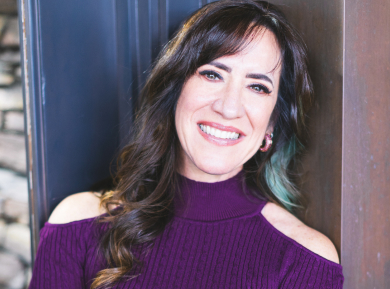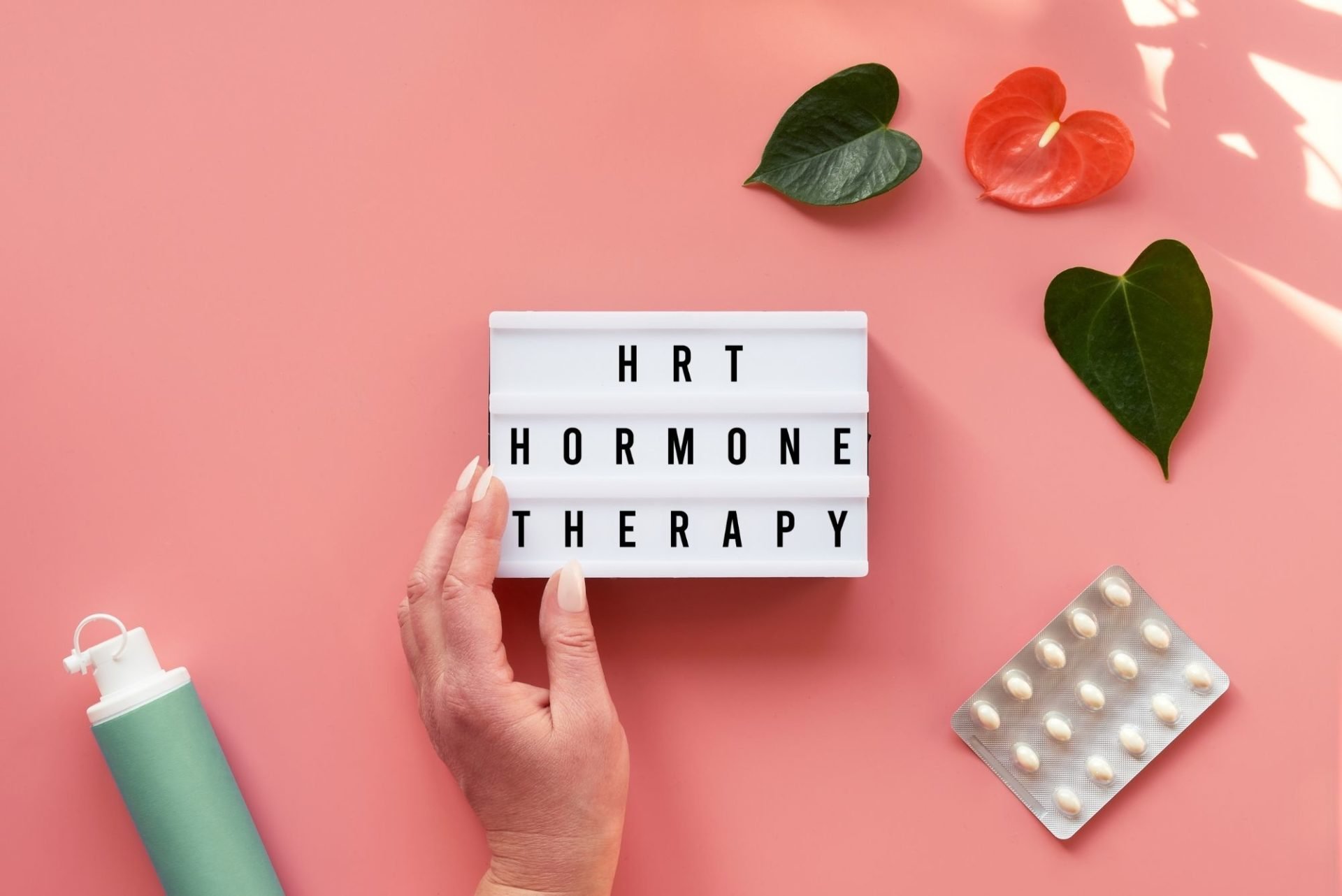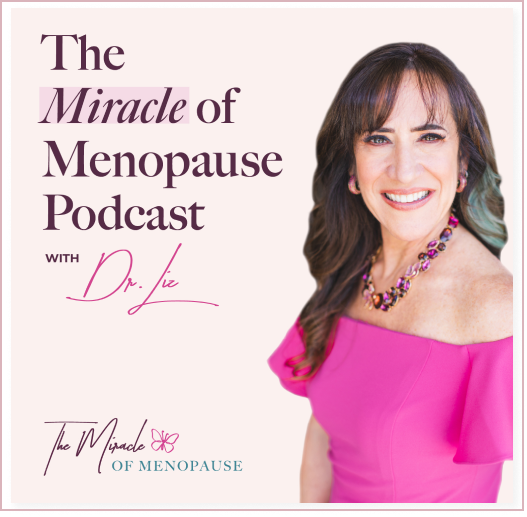

Thrive at Every Age


Thrive at Every Age
Stay Empowered With Insights From Dr. Liz
Subscribe to Dr. Liz's Blog for the latest health insights and wellness strategies delivered straight to your inbox.
I agree to terms & conditions provided by the company. By providing my phone number, I agree to receive text messages from the business. We respect your privacy and won’t sell your information.
The Highlights

Menopause - Mess or Miracle?
Menopause gets a lot of bad press. Sure, there’s a funny musical in Las Vegas about “The Change”, but mostly women are scared of the changes that, if we’re lucky, we...
...more

Testosterone for Confidence
What a lot of people don’t realize is that the right level of testosterone also can give women a feeling of self-confidence. With self-confidence, women can have better “stress tolerance” and...
...more

“How Long Do I Have to Take Hormones?”
This question comes up with pretty much every woman I talk to about hormone replacement therapy. I am going to approach my answer from a few different angles...
...more

Boiling Frog
Most people are aware of the fact that somewhere around age 50, women go through menopause. What happens in midlife for you as a man? Obviously, boys go through puberty with all its changes...
...more
The Highlights




Menopause - Mess or Miracle?
Menopause gets a lot of bad press. Sure, there’s a funny musical in Las Vegas about “The Change”, but mostly women are scared of the changes that, if we’re lucky, we...
...more
Testosterone for Confidence
What a lot of people don’t realize is that the right level of testosterone also can give women a feeling of self-confidence. With self-confidence, women can have better “stress tolerance” and...
...more
“How Long Do I Have to Take Hormones?”
This question comes up with pretty much every woman I talk to about hormone replacement therapy. I am going to approach my answer from a few different angles...
...more
Boiling Frog
Most people are aware of the fact that somewhere around age 50, women go through menopause. What happens in midlife for you as a man? Obviously, boys go through puberty with all its changes...
...more
Most Recent

This Is How Vitamin D Kills Cancer
This Is How Vitamin D Kills Cancer
It’s important to know when to die. Especially if you are a cell.
You’re going to learn a new word today, a word which I’m not sure you really need to remember, and you can’t really use at a cocktail party unless it’s a party full of cancer doctors or geneticists.
The word is apoptosis (“ay-pop-toe’-sis”).
Apoptosis means “programmed cell death”. For a cell, normal apoptosis means it comes into being through normal cell division, lives its normal life span (which varies depending on what kind of cell it is), then dies to make way for new cells and the regeneration of tissues in the body.
OK stay with me now:
Decreased apoptosis means the cells live longer because they don’t die when they are supposed to.
This is the essence of cancer.
In fact, in a rapidly growing cancer, apoptosis has turned off, and the cells divide and increase without dying, and take over the neighboring normal cells.
Kind of like a zombie movie.
But back to apoptosis.
Another way to describe apoptosis is to call it programmed suicide. Cancer cells protect themselves from committing suicide. Imagine you are Wonder Woman, and you can throw out an invisible force field that protects you.
Cancer cells can do this.
Cancer cells make an anti-apoptotic protein called Bcl-2. Bcl-2 (I wish it had a better name, but it really doesn’t!) is a protein that you will find less of around normal cells and tissues and more of around cancer.
Question: Why don’t young people usually get cancer?
Answer: Because high and balanced levels of hormones are protective. As we get older, declining levels of hormones lower their protective effect on cells.
Specifically, high levels of certain hormones (like estrogen in women and testosterone in men) will lower the production of Bcl-2. Something else lowers Bcl-2, something I have discussed before: vitamin D!
Vitamin D has strong powers against cancer, killing cancer cells in at least four different ways, all while not harming normal cells.
Vitamin D:
lowers the production of an inflammation enzyme (COX-2),
raises the production of a tumor suppressor (15-PGDH, in case you were interested)
lowers the activity of an enzyme that increases the harmful production of estrogen (aromatase), and…
Yes! It lowers the production of Bcl-2
Vitamin D has been shown to lower Bcl-2 in a variety of cancers, including breast cancer, prostate cancer, and colorectal cancer. In fact, due to its anti-Bcl-2 activity, it is even being studied as a treatment for several other cancers.
How much is enough vitamin D?
Most laboratory reports will tell you a reference range from 30 to 100 for the level of active vitamin D. In other words, a level of 31 will not flag as abnormal on the report.
However, an optimal level is at least above 60. You cannot get this optimal level without taking a vitamin D supplement.
It’s not found in food; we normally get vitamin D from sunlight, but modern conveniences like sunscreen and soap will block the conversion in your skin into the active form. Also, after age 20, our skin becomes less and less efficient at converting this vitamin to its active form.
Is it possible to take too much vitamin D?
It is possible but it is difficult. If your level goes above 100 you could possibly have a side effect of an irregular heartbeat.
There are rare reports of vitamin D toxicity, and none of these reports was in anyone taking less than 300,000 iu per week.
I personally take a once a week dose of 50,000 iu (of D-3, the ACTIVE form). It’s fine to take a daily dose if you prefer, and it’s important to get your level checked. And don’t settle for being barely in the range. Be optimal (above 60).
If some vitamin D is good, is more better? For most people, the answer is “YES”. If you’re fighting off an illness, take more.
The bottom line
Vitamin D is one of the simplest and most effective ways to make sure you and your cells have normal apoptosis. It will help you keep that Bcl-2 weapon away from the bad guys.
I’m sorry I did not set you up to sound super smart at your next work function or party with friends. Hopefully lowering your risk of cancer and Alzheimer’s will help you forgive me.


Top Pillars
Pillar 1
The Miracle of Menopause
Pillar 2
Women’s Hormone Health Journey
Pillar 3
Hormone Symptoms and Solutions
Pillar 4
Men’s Hormone Health Journey
Most Recent

This Is How Vitamin D Kills Cancer
This Is How Vitamin D Kills Cancer
It’s important to know when to die. Especially if you are a cell.
You’re going to learn a new word today, a word which I’m not sure you really need to remember, and you can’t really use at a cocktail party unless it’s a party full of cancer doctors or geneticists.
The word is apoptosis (“ay-pop-toe’-sis”).
Apoptosis means “programmed cell death”. For a cell, normal apoptosis means it comes into being through normal cell division, lives its normal life span (which varies depending on what kind of cell it is), then dies to make way for new cells and the regeneration of tissues in the body.
OK stay with me now:
Decreased apoptosis means the cells live longer because they don’t die when they are supposed to.
This is the essence of cancer.
In fact, in a rapidly growing cancer, apoptosis has turned off, and the cells divide and increase without dying, and take over the neighboring normal cells.
Kind of like a zombie movie.
But back to apoptosis.
Another way to describe apoptosis is to call it programmed suicide. Cancer cells protect themselves from committing suicide. Imagine you are Wonder Woman, and you can throw out an invisible force field that protects you.
Cancer cells can do this.
Cancer cells make an anti-apoptotic protein called Bcl-2. Bcl-2 (I wish it had a better name, but it really doesn’t!) is a protein that you will find less of around normal cells and tissues and more of around cancer.
Question: Why don’t young people usually get cancer?
Answer: Because high and balanced levels of hormones are protective. As we get older, declining levels of hormones lower their protective effect on cells.
Specifically, high levels of certain hormones (like estrogen in women and testosterone in men) will lower the production of Bcl-2. Something else lowers Bcl-2, something I have discussed before: vitamin D!
Vitamin D has strong powers against cancer, killing cancer cells in at least four different ways, all while not harming normal cells.
Vitamin D:
lowers the production of an inflammation enzyme (COX-2),
raises the production of a tumor suppressor (15-PGDH, in case you were interested)
lowers the activity of an enzyme that increases the harmful production of estrogen (aromatase), and…
Yes! It lowers the production of Bcl-2
Vitamin D has been shown to lower Bcl-2 in a variety of cancers, including breast cancer, prostate cancer, and colorectal cancer. In fact, due to its anti-Bcl-2 activity, it is even being studied as a treatment for several other cancers.
How much is enough vitamin D?
Most laboratory reports will tell you a reference range from 30 to 100 for the level of active vitamin D. In other words, a level of 31 will not flag as abnormal on the report.
However, an optimal level is at least above 60. You cannot get this optimal level without taking a vitamin D supplement.
It’s not found in food; we normally get vitamin D from sunlight, but modern conveniences like sunscreen and soap will block the conversion in your skin into the active form. Also, after age 20, our skin becomes less and less efficient at converting this vitamin to its active form.
Is it possible to take too much vitamin D?
It is possible but it is difficult. If your level goes above 100 you could possibly have a side effect of an irregular heartbeat.
There are rare reports of vitamin D toxicity, and none of these reports was in anyone taking less than 300,000 iu per week.
I personally take a once a week dose of 50,000 iu (of D-3, the ACTIVE form). It’s fine to take a daily dose if you prefer, and it’s important to get your level checked. And don’t settle for being barely in the range. Be optimal (above 60).
If some vitamin D is good, is more better? For most people, the answer is “YES”. If you’re fighting off an illness, take more.
The bottom line
Vitamin D is one of the simplest and most effective ways to make sure you and your cells have normal apoptosis. It will help you keep that Bcl-2 weapon away from the bad guys.
I’m sorry I did not set you up to sound super smart at your next work function or party with friends. Hopefully lowering your risk of cancer and Alzheimer’s will help you forgive me.


Top Categories
The Miracle of Menopause
Women’s Hormone Health Journey
Hormone Symptoms and Solutions
Men’s Hormone Health Journey

Pillar 1 : The Miracle of Menopause

Blog Post Title Here
Lorem ipsum dolor sit amet, consectetur adipiscing elit, sed do eiusmod tempor sed do eiusmod tempor
Date Here

Blog Post Title Here
Lorem ipsum dolor sit amet, consectetur adipiscing elit, sed do eiusmod tempor sed do eiusmod tempor
Date Here

Blog Post Title Here
Lorem ipsum dolor sit amet, consectetur adipiscing elit, sed do eiusmod tempor sed do eiusmod tempor
Date Here
Pillar 2: Women’s Hormone Health Journey

Blog Post Title Here
Lorem ipsum dolor sit amet, consectetur adipiscing elit, sed do eiusmod tempor sed do eiusmod tempor
Date Here

Blog Post Title Here
Lorem ipsum dolor sit amet, consectetur adipiscing elit, sed do eiusmod tempor sed do eiusmod tempor
Date Here

Blog Post Title Here
Lorem ipsum dolor sit amet, consectetur adipiscing elit, sed do eiusmod tempor sed do eiusmod tempor
Date Here
Pillar 3: Hormone Symptoms and Solutions

Blog Post Title Here
Lorem ipsum dolor sit amet, consectetur adipiscing elit, sed do eiusmod tempor sed do eiusmod tempor
Date Here

Blog Post Title Here
Lorem ipsum dolor sit amet, consectetur adipiscing elit, sed do eiusmod tempor sed do eiusmod tempor
Date Here

Blog Post Title Here
Lorem ipsum dolor sit amet, consectetur adipiscing elit, sed do eiusmod tempor sed do eiusmod tempor
Date Here
Pillar 4: Men’s Hormone Health Journey

Blog Post Title Here
Lorem ipsum dolor sit amet, consectetur adipiscing elit, sed do eiusmod tempor sed do eiusmod tempor
Date Here

Blog Post Title Here
Lorem ipsum dolor sit amet, consectetur adipiscing elit, sed do eiusmod tempor sed do eiusmod tempor
Date Here

Blog Post Title Here
Lorem ipsum dolor sit amet, consectetur adipiscing elit, sed do eiusmod tempor sed do eiusmod tempor
Date Here
Pillar 1 : The Miracle of Menopause

Blog Post Title Here
Lorem ipsum dolor sit amet, consectetur adipiscing elit, sed do eiusmod tempor sed do eiusmod tempor
Date Here

Blog Post Title Here
Lorem ipsum dolor sit amet, consectetur adipiscing elit, sed do eiusmod tempor sed do eiusmod tempor
Date Here

Blog Post Title Here
Lorem ipsum dolor sit amet, consectetur adipiscing elit, sed do eiusmod tempor sed do eiusmod tempor
Date Here
Pillar 2: Women’s Hormone Health Journey

Blog Post Title Here
Lorem ipsum dolor sit amet, consectetur adipiscing elit, sed do eiusmod tempor sed do eiusmod tempor
Date Here

Blog Post Title Here
Lorem ipsum dolor sit amet, consectetur adipiscing elit, sed do eiusmod tempor sed do eiusmod tempor
Date Here

Blog Post Title Here
Lorem ipsum dolor sit amet, consectetur adipiscing elit, sed do eiusmod tempor sed do eiusmod tempor
Date Here
Pillar 3: Hormone Symptoms and Solutions

Blog Post Title Here
Lorem ipsum dolor sit amet, consectetur adipiscing elit, sed do eiusmod tempor sed do eiusmod tempor
Date Here

Blog Post Title Here
Lorem ipsum dolor sit amet, consectetur adipiscing elit, sed do eiusmod tempor sed do eiusmod tempor
Date Here

Blog Post Title Here
Lorem ipsum dolor sit amet, consectetur adipiscing elit, sed do eiusmod tempor sed do eiusmod tempor
Date Here
Pillar 4: Men’s Hormone Health Journey

Blog Post Title Here
Lorem ipsum dolor sit amet, consectetur adipiscing elit, sed do eiusmod tempor sed do eiusmod tempor
Date Here

Blog Post Title Here
Lorem ipsum dolor sit amet, consectetur adipiscing elit, sed do eiusmod tempor sed do eiusmod tempor
Date Here

Blog Post Title Here
Lorem ipsum dolor sit amet, consectetur adipiscing elit, sed do eiusmod tempor sed do eiusmod tempor
Date Here
Have questions or seeking guidance on your wellness journey?
Reach out to Dr. Liz for advice and support.


Connect Here
Copyright © 2024 Dr Liz MD. All rights reserved. | Privacy Policy | Terms


Thrive at Every Age


Thrive at Every Age
Stay Empowered With Insights From Dr. Liz
Subscribe to Dr. Liz's Blog for the latest health insights and wellness strategies delivered straight to your inbox.
I agree to terms & conditions provided by the company. By providing my phone number, I agree to receive text messages from the business. We respect your privacy and won’t sell your information.
The Highlights

Menopause - Mess or Miracle?
Menopause gets a lot of bad press. Sure, there’s a funny musical in Las Vegas about “The Change”, but mostly women are scared of the changes that, if we’re lucky, we...
...more

Testosterone for Confidence
What a lot of people don’t realize is that the right level of testosterone also can give women a feeling of self-confidence. With self-confidence, women can have better “stress tolerance” and...
...more

“How Long Do I Have to Take Hormones?”
This question comes up with pretty much every woman I talk to about hormone replacement therapy. I am going to approach my answer from a few different angles...
...more

Boiling Frog
Most people are aware of the fact that somewhere around age 50, women go through menopause. What happens in midlife for you as a man? Obviously, boys go through puberty with all its changes...
...more
The Highlights




Menopause - Mess or Miracle?
Menopause gets a lot of bad press. Sure, there’s a funny musical in Las Vegas about “The Change”, but mostly women are scared of the changes that, if we’re lucky, we...
...more
Testosterone for Confidence
What a lot of people don’t realize is that the right level of testosterone also can give women a feeling of self-confidence. With self-confidence, women can have better “stress tolerance” and...
...more
“How Long Do I Have to Take Hormones?”
This question comes up with pretty much every woman I talk to about hormone replacement therapy. I am going to approach my answer from a few different angles...
...more
Boiling Frog
Most people are aware of the fact that somewhere around age 50, women go through menopause. What happens in midlife for you as a man? Obviously, boys go through puberty with all its changes...
...more
Most Recent

This Is How Vitamin D Kills Cancer
This Is How Vitamin D Kills Cancer
It’s important to know when to die. Especially if you are a cell.
You’re going to learn a new word today, a word which I’m not sure you really need to remember, and you can’t really use at a cocktail party unless it’s a party full of cancer doctors or geneticists.
The word is apoptosis (“ay-pop-toe’-sis”).
Apoptosis means “programmed cell death”. For a cell, normal apoptosis means it comes into being through normal cell division, lives its normal life span (which varies depending on what kind of cell it is), then dies to make way for new cells and the regeneration of tissues in the body.
OK stay with me now:
Decreased apoptosis means the cells live longer because they don’t die when they are supposed to.
This is the essence of cancer.
In fact, in a rapidly growing cancer, apoptosis has turned off, and the cells divide and increase without dying, and take over the neighboring normal cells.
Kind of like a zombie movie.
But back to apoptosis.
Another way to describe apoptosis is to call it programmed suicide. Cancer cells protect themselves from committing suicide. Imagine you are Wonder Woman, and you can throw out an invisible force field that protects you.
Cancer cells can do this.
Cancer cells make an anti-apoptotic protein called Bcl-2. Bcl-2 (I wish it had a better name, but it really doesn’t!) is a protein that you will find less of around normal cells and tissues and more of around cancer.
Question: Why don’t young people usually get cancer?
Answer: Because high and balanced levels of hormones are protective. As we get older, declining levels of hormones lower their protective effect on cells.
Specifically, high levels of certain hormones (like estrogen in women and testosterone in men) will lower the production of Bcl-2. Something else lowers Bcl-2, something I have discussed before: vitamin D!
Vitamin D has strong powers against cancer, killing cancer cells in at least four different ways, all while not harming normal cells.
Vitamin D:
lowers the production of an inflammation enzyme (COX-2),
raises the production of a tumor suppressor (15-PGDH, in case you were interested)
lowers the activity of an enzyme that increases the harmful production of estrogen (aromatase), and…
Yes! It lowers the production of Bcl-2
Vitamin D has been shown to lower Bcl-2 in a variety of cancers, including breast cancer, prostate cancer, and colorectal cancer. In fact, due to its anti-Bcl-2 activity, it is even being studied as a treatment for several other cancers.
How much is enough vitamin D?
Most laboratory reports will tell you a reference range from 30 to 100 for the level of active vitamin D. In other words, a level of 31 will not flag as abnormal on the report.
However, an optimal level is at least above 60. You cannot get this optimal level without taking a vitamin D supplement.
It’s not found in food; we normally get vitamin D from sunlight, but modern conveniences like sunscreen and soap will block the conversion in your skin into the active form. Also, after age 20, our skin becomes less and less efficient at converting this vitamin to its active form.
Is it possible to take too much vitamin D?
It is possible but it is difficult. If your level goes above 100 you could possibly have a side effect of an irregular heartbeat.
There are rare reports of vitamin D toxicity, and none of these reports was in anyone taking less than 300,000 iu per week.
I personally take a once a week dose of 50,000 iu (of D-3, the ACTIVE form). It’s fine to take a daily dose if you prefer, and it’s important to get your level checked. And don’t settle for being barely in the range. Be optimal (above 60).
If some vitamin D is good, is more better? For most people, the answer is “YES”. If you’re fighting off an illness, take more.
The bottom line
Vitamin D is one of the simplest and most effective ways to make sure you and your cells have normal apoptosis. It will help you keep that Bcl-2 weapon away from the bad guys.
I’m sorry I did not set you up to sound super smart at your next work function or party with friends. Hopefully lowering your risk of cancer and Alzheimer’s will help you forgive me.


Top Pillars
Pillar 1
The Miracle of Menopause
Pillar 2
Women’s Hormone Health Journey
Pillar 3
Hormone Symptoms and Solutions
Pillar 4
Men’s Hormone Health Journey
Most Recent

This Is How Vitamin D Kills Cancer
This Is How Vitamin D Kills Cancer
It’s important to know when to die. Especially if you are a cell.
You’re going to learn a new word today, a word which I’m not sure you really need to remember, and you can’t really use at a cocktail party unless it’s a party full of cancer doctors or geneticists.
The word is apoptosis (“ay-pop-toe’-sis”).
Apoptosis means “programmed cell death”. For a cell, normal apoptosis means it comes into being through normal cell division, lives its normal life span (which varies depending on what kind of cell it is), then dies to make way for new cells and the regeneration of tissues in the body.
OK stay with me now:
Decreased apoptosis means the cells live longer because they don’t die when they are supposed to.
This is the essence of cancer.
In fact, in a rapidly growing cancer, apoptosis has turned off, and the cells divide and increase without dying, and take over the neighboring normal cells.
Kind of like a zombie movie.
But back to apoptosis.
Another way to describe apoptosis is to call it programmed suicide. Cancer cells protect themselves from committing suicide. Imagine you are Wonder Woman, and you can throw out an invisible force field that protects you.
Cancer cells can do this.
Cancer cells make an anti-apoptotic protein called Bcl-2. Bcl-2 (I wish it had a better name, but it really doesn’t!) is a protein that you will find less of around normal cells and tissues and more of around cancer.
Question: Why don’t young people usually get cancer?
Answer: Because high and balanced levels of hormones are protective. As we get older, declining levels of hormones lower their protective effect on cells.
Specifically, high levels of certain hormones (like estrogen in women and testosterone in men) will lower the production of Bcl-2. Something else lowers Bcl-2, something I have discussed before: vitamin D!
Vitamin D has strong powers against cancer, killing cancer cells in at least four different ways, all while not harming normal cells.
Vitamin D:
lowers the production of an inflammation enzyme (COX-2),
raises the production of a tumor suppressor (15-PGDH, in case you were interested)
lowers the activity of an enzyme that increases the harmful production of estrogen (aromatase), and…
Yes! It lowers the production of Bcl-2
Vitamin D has been shown to lower Bcl-2 in a variety of cancers, including breast cancer, prostate cancer, and colorectal cancer. In fact, due to its anti-Bcl-2 activity, it is even being studied as a treatment for several other cancers.
How much is enough vitamin D?
Most laboratory reports will tell you a reference range from 30 to 100 for the level of active vitamin D. In other words, a level of 31 will not flag as abnormal on the report.
However, an optimal level is at least above 60. You cannot get this optimal level without taking a vitamin D supplement.
It’s not found in food; we normally get vitamin D from sunlight, but modern conveniences like sunscreen and soap will block the conversion in your skin into the active form. Also, after age 20, our skin becomes less and less efficient at converting this vitamin to its active form.
Is it possible to take too much vitamin D?
It is possible but it is difficult. If your level goes above 100 you could possibly have a side effect of an irregular heartbeat.
There are rare reports of vitamin D toxicity, and none of these reports was in anyone taking less than 300,000 iu per week.
I personally take a once a week dose of 50,000 iu (of D-3, the ACTIVE form). It’s fine to take a daily dose if you prefer, and it’s important to get your level checked. And don’t settle for being barely in the range. Be optimal (above 60).
If some vitamin D is good, is more better? For most people, the answer is “YES”. If you’re fighting off an illness, take more.
The bottom line
Vitamin D is one of the simplest and most effective ways to make sure you and your cells have normal apoptosis. It will help you keep that Bcl-2 weapon away from the bad guys.
I’m sorry I did not set you up to sound super smart at your next work function or party with friends. Hopefully lowering your risk of cancer and Alzheimer’s will help you forgive me.


Top Categories
The Miracle of Menopause
Women’s Hormone Health Journey
Hormone Symptoms and Solutions
Men’s Hormone Health Journey

Pillar 1 : The Miracle of Menopause

Blog Post Title Here
Lorem ipsum dolor sit amet, consectetur adipiscing elit, sed do eiusmod tempor sed do eiusmod tempor
Date Here

Blog Post Title Here
Lorem ipsum dolor sit amet, consectetur adipiscing elit, sed do eiusmod tempor sed do eiusmod tempor
Date Here

Blog Post Title Here
Lorem ipsum dolor sit amet, consectetur adipiscing elit, sed do eiusmod tempor sed do eiusmod tempor
Date Here
Pillar 2: Women’s Hormone Health Journey

Blog Post Title Here
Lorem ipsum dolor sit amet, consectetur adipiscing elit, sed do eiusmod tempor sed do eiusmod tempor
Date Here

Blog Post Title Here
Lorem ipsum dolor sit amet, consectetur adipiscing elit, sed do eiusmod tempor sed do eiusmod tempor
Date Here

Blog Post Title Here
Lorem ipsum dolor sit amet, consectetur adipiscing elit, sed do eiusmod tempor sed do eiusmod tempor
Date Here
Pillar 3: Hormone Symptoms and Solutions

Blog Post Title Here
Lorem ipsum dolor sit amet, consectetur adipiscing elit, sed do eiusmod tempor sed do eiusmod tempor
Date Here

Blog Post Title Here
Lorem ipsum dolor sit amet, consectetur adipiscing elit, sed do eiusmod tempor sed do eiusmod tempor
Date Here

Blog Post Title Here
Lorem ipsum dolor sit amet, consectetur adipiscing elit, sed do eiusmod tempor sed do eiusmod tempor
Date Here
Pillar 4: Men’s Hormone Health Journey

Blog Post Title Here
Lorem ipsum dolor sit amet, consectetur adipiscing elit, sed do eiusmod tempor sed do eiusmod tempor
Date Here

Blog Post Title Here
Lorem ipsum dolor sit amet, consectetur adipiscing elit, sed do eiusmod tempor sed do eiusmod tempor
Date Here

Blog Post Title Here
Lorem ipsum dolor sit amet, consectetur adipiscing elit, sed do eiusmod tempor sed do eiusmod tempor
Date Here
Pillar 1 : The Miracle of Menopause

Blog Post Title Here
Lorem ipsum dolor sit amet, consectetur adipiscing elit, sed do eiusmod tempor sed do eiusmod tempor
Date Here

Blog Post Title Here
Lorem ipsum dolor sit amet, consectetur adipiscing elit, sed do eiusmod tempor sed do eiusmod tempor
Date Here

Blog Post Title Here
Lorem ipsum dolor sit amet, consectetur adipiscing elit, sed do eiusmod tempor sed do eiusmod tempor
Date Here
Pillar 2: Women’s Hormone Health Journey

Blog Post Title Here
Lorem ipsum dolor sit amet, consectetur adipiscing elit, sed do eiusmod tempor sed do eiusmod tempor
Date Here

Blog Post Title Here
Lorem ipsum dolor sit amet, consectetur adipiscing elit, sed do eiusmod tempor sed do eiusmod tempor
Date Here

Blog Post Title Here
Lorem ipsum dolor sit amet, consectetur adipiscing elit, sed do eiusmod tempor sed do eiusmod tempor
Date Here
Pillar 3: Hormone Symptoms and Solutions

Blog Post Title Here
Lorem ipsum dolor sit amet, consectetur adipiscing elit, sed do eiusmod tempor sed do eiusmod tempor
Date Here

Blog Post Title Here
Lorem ipsum dolor sit amet, consectetur adipiscing elit, sed do eiusmod tempor sed do eiusmod tempor
Date Here

Blog Post Title Here
Lorem ipsum dolor sit amet, consectetur adipiscing elit, sed do eiusmod tempor sed do eiusmod tempor
Date Here
Pillar 4: Men’s Hormone Health Journey

Blog Post Title Here
Lorem ipsum dolor sit amet, consectetur adipiscing elit, sed do eiusmod tempor sed do eiusmod tempor
Date Here

Blog Post Title Here
Lorem ipsum dolor sit amet, consectetur adipiscing elit, sed do eiusmod tempor sed do eiusmod tempor
Date Here

Blog Post Title Here
Lorem ipsum dolor sit amet, consectetur adipiscing elit, sed do eiusmod tempor sed do eiusmod tempor
Date Here
Have questions or seeking guidance on your wellness journey?
Reach out to Dr. Liz for advice and support.


Connect Here
Copyright © 2024 Dr Liz MD. All rights reserved. | Privacy Policy | Terms
